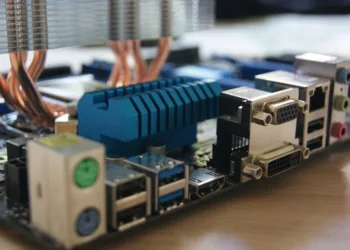Select Language:
When it comes to connecting our devices to the internet, two common options often come to mind: Wi-Fi and mobile hotspots. Each has its own benefits and drawbacks, leaving many wondering whether a hotspot can truly match the reliability and speed of traditional Wi-Fi. This article delves into the key differences, advantages, and disadvantages of both options.
Understanding Wi-Fi and Hotspots
What is Wi-Fi?
Wi-Fi refers to a wireless networking technology that allows devices to connect to the internet or communicate wirelessly within a certain range. It typically relies on a broadband connection, such as DSL or fiber-optic.
What is a Hotspot?
A hotspot is a physical location or device that provides internet access to other devices through a mobile data connection. This can involve turning your smartphone into a hotspot or using dedicated mobile hotspots available through various providers.
Speed and Performance
Wi-Fi Speed
- Generally Faster: Wi-Fi connections typically offer faster speeds compared to mobile hotspots, especially when connected to a robust broadband network.
- High Bandwidth: Ideal for streaming, gaming, and video conferencing without buffering or lag.
- Multiple Devices: Can support multiple connections without significant performance degradation when using a good router.
Hotspot Speed
- Dependent on Cellular Network: Hotspot speed varies based on cellular signal strength and network congestion.
- Limited Bandwidth: Might struggle with heavy usage or several devices connected at once.
- 4G vs. 5G: Hotspots using 5G technology can provide impressive speeds, but availability may be limited in some areas.
Coverage and Availability
Wi-Fi Coverage
- Fixed Location: Wi-Fi is typically restricted to a specific area determined by the router’s range, which usually covers your home or office.
- Interference: Walls and other obstacles can weaken the signal and reduce range.
Hotspot Coverage
- On-the-Go Access: Hotspots can be accessed practically anywhere with cellular coverage, making them ideal for travel or outdoor activities.
- Variable Signal Quality: Coverage can vary, with rural areas often experiencing weaker signals compared to urban centers.
Data Limits and Costs
Wi-Fi Data Usage
- Unlimited Plans: Many ISPs offer unlimited data packages, allowing for extensive usage without additional charges.
- Fixed Monthly Cost: Monthly fees can be predictable, enabling better budgeting for internet expenses.
Hotspot Data Usage
- Data Caps: Mobile hotspot plans often come with strict data limits, which can result in overage charges if exceeded.
- Higher Costs for Extra Data: Purchasing more data can add significant costs, especially if used for activities that consume a lot of bandwidth.
Convenience and Setup
Wi-Fi Convenience
- Setup: Once configured, Wi-Fi is easy to use with automatic device connection.
- Home Networking: Connect multiple devices easily, including smart home gadgets.
Hotspot Convenience
- Portability: A hotspot is convenient for users who are frequently on the move.
- Easy Setup: Hotspot activation on smartphones or devices is usually straightforward.
Battery Life and Device Impact
Wi-Fi Device Impact
- Power Efficiency: Devices tend to consume less power when connected to Wi-Fi, preserving battery life.
- Messy Cables: Traditional setups can involve multiple cables and hardware.
Hotspot Device Impact
- Battery Drain: Running a hotspot can significantly drain the battery of the device providing the connection.
- Heat Generation: Extended use may cause devices to heat up, affecting performance.
Summary of Key Differences
| Feature | Wi-Fi | Hotspot |
|---|---|---|
| Speed | Generally faster | Varies (depends on network) |
| Coverage | Limited to specific areas | Available anywhere with service |
| Data Use | Often unlimited | Usually comes with caps |
| Setup | Static and low-maintenance | Portable and flexible |
| Device Impact | Less battery drain | Can drain battery quickly |
With so many factors to consider, the choice between Wi-Fi and mobile hotspots depends on individual needs and circumstances. Whether for home use, travel, or specific activities, assessing the advantages and disadvantages of each option can lead to a well-informed decision tailored to your internet connectivity requirements.






